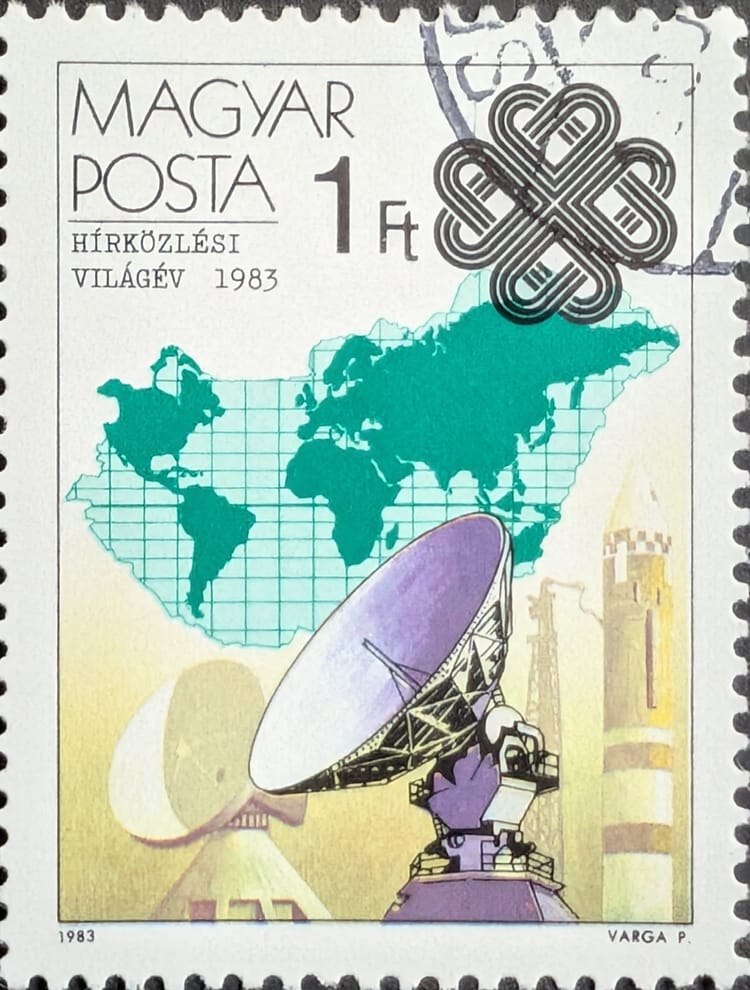European LEO Broadband: feasible but unrealistic?

I have an answer for those wondering about a pending analysis consolidating 2021’s spacecraft activities: it’s in the Space Foundation’s The Space Report, published last month. If you’re still interested in that type of analysis, I recommend going there, although it is not free. Yep, this is an ad. And one more thing: I was a co-author with a team of folks working on space security as part of Springer’s “Handbook for Security Science.” It was just published online, and you can download our section from this link: https://lnkd.in/gksTVnEF.
On to what you’re really here for.
Previously, on Ill-Defined Space
A little over a year ago, I wrote “European Union Space Plans: Why Lead, when It’s Easier to Follow?” At the time, European Union bureaucrats were discussing following the lead of companies like Starlink and OneWeb and the possibility of deploying 600 low Earth orbit (LEO) broadband satellites. They provided the following reasons as to why ANOTHER broadband constellation is necessary:
- Get access to everyone, including those in “dead zones.”
- European independence
- European secured communications (quantum)
- A backup to other communications
Also, I guess it’s European…so there’s that.
What I interpreted at the time was:
“Based on those reasons, I have to wonder why over 600 satellites are required to accomplish this. That estimate is close to the final number of satellites OneWeb will deploy for its initial constellation (for global communications). It’s not as if European Colonialism is flourishing currently. Most Europeans live on the continent. I’m not sure Europe needs a constellation of satellites, much less needs them quickly. A single geosynchronous satellite could fulfill all of Breton’s goals (except for those Europeans living in the northern latitudes).”
“The cynical part of me believes the number of satellites is intended to keep Europe’s Ariane 6 space launch vehicle employed, as it’s not gaining much traction from commercial companies. And 600 satellites require manufacturers, operators, and more…so it keeps those European space companies happy. Simultaneously, having the government build out and provide communications infrastructure is a traditional role–especially in Europe. It seems natural for the EU to come up with an idea to help keep Europeans connected. But still–600 satellites?”
Nothing has occurred during the past year to make me believe those still aren’t factors in pushing for a European-operated LEO broadband constellation. What has changed is that the Europeans are noting the primary reason for deploying these satellites is for “military usage and needs.” And secure communications, the quantum part of the network, will play a role in protecting military communications. At the same time, there’s some confusion as they also apparently want to offer a European alternative to commercial offerings in Africa. So is it a military communications constellation that will also provide a subsidized commercial service to Africa?
Ambitious, Feasible, and Un-tethered
But the European Union’s Thierry Breton also has some breaking news for everyone: building and deploying a LEO broadband constellation quickly is feasible. According to SpaceNews:
“Once presented, I count on the Member States and the European Parliament to move fast, so we can hopefully conclude in a year of time the negotiation and have the first services deployed already by 2024,” he said.
“I know it is ambitious, but I know that it is also feasible.”
That revelation probably will come as a shock to OneWeb and Starlink. Obviously, to both companies, the feasibility of deploying LEO broadband satellites isn’t in question–it’s a reality. The question for Breton is, then, while he and his study groups say it’s feasible, is it realistic?
I feel I must point out that it took the EU over a year to come to that conclusion. The time taken does not bode well for the optimism Breton exhibited in his statements nor the 2024 deployment goal he outlined for the EULEO (pronounced yu-leeoh. I made that up, I don’t think it has a name yet) constellation. Also, the EU’s long history with Galileo satellite development and rollout gives no confidence. Unless EULEO uses existing resources, such as Airbus’ Arrow bus, that date is a fantasy.
Let’s compare SpaceX’s timeline and accomplishments with those projected for EULEO.
Speculation about SpaceX operating a large micro-satellite constellation was heard in 2014. In 2015, Musk announced a plan to deploy 4,000 satellites, with SpaceX launching two demonstrators three years after that. A year and a half later, the company deployed its first batch of Starlink satellites. It took about 4.5 years (from the first announcement to the first launch) to test, develop, mass manufacture, and deploy the first Starlink satellites.
About 1.5 years later, the company was selling phased array antennas to users as part of a beta test. Since then, the company has opened and expanded its service, including customers in Europe. Those accomplishments are courtesy of one of the fastest-moving space companies in the business.
Then look at the EU, the companies supporting EULEO (Airbus, Arianespace, Hispasat, OHB, Orange, SES, Telespazio, and Thales Alenia Space), revisit the proposed satellite deployment date, and…laugh at the joke? It shouldn’t be, but it is.
The European Union hasn’t changed its processes. The European Space Agency is about as hidebound as the EU and willing to tow the EU’s line, ready to throw 1 billion EUR at the project. Companies like Airbus and Arianespace have no reason to change, especially when both the EC and ESA are ready to throw money at them in the name of European sovereignty. There is absolutely no way the EU and the companies it’s likely to fund will meet the 2024 deadline.
Scheduling For Failure and Increasing Profits
Breton already admitted that two-thirds of the European Parliament must approve EULEO and that it could take slightly less than a year to do that. And who knows just what kind of strings will be attached in the resulting compromise, including the fights over which company (representing a country) will be responsible for what, not to mention the substantial government-run project management overhead required for the cat-herding of those companies on this project.
And then there are the companies that will be involved in EULEO. None have SpaceX’s fierce urgency. Some have a history with Galileo, a project with a contra-SpaceX pace, which is not something to be proud of. The Ariane 6’s design concept was selected when Starlink was a mere whisper (2014). It still isn’t finished but was supposed to have launched in 2020. That’s all to say that while European space companies do cooperate and create excellent space technology, they don’t appear capable of keeping to a schedule.
Maybe more concerning is how Breton is justifying this EULEO effort. If he and the commission rely on a study’s conclusions that depended on the honesty of companies who know they will be recipients of the billions poured into the program, then that’s a problem. There are apparent conflicts of interest. Of course they will say it’s feasible, and they wouldn’t have needed a year to give that response. They aren’t lying–it is feasible.
But they also aren’t being honest because they’ve demonstrated that they can’t move that quickly–ever. The companies will create an operational LEO broadband constellation but take their time and the corresponding, ever-increasing European taxpayer-supplied billions necessary to sustain a short-term project morphing to the long term quite quickly. And, like in the U.S., if the funding is for defense purposes, the people questioning the increased spending will be seen as unpatriotic and not a part of the team. The EC has already punished Eutelsat for daring to have invested in OneWeb, denying the company any sort of participation in EULEO.
There’s nothing wrong with being a copycat or a follower, even if it demonstrates a lack of vision. However, it is pragmatic and one of the least risky strategies to succeed. The EU has decided to focus on the military, eliminating even that challenge, as EULEO then caters to defense and not a commercial market (despite the African angle). It also means that it will not be a rival to the commercially-focused offerings of Starlink and OneWeb.
The real question is one of reality, since Breton seems intent on pushing this program through. Yes, as with lotteries, there’s a slight chance that the constellation will be completed quickly. But for those who can do basic math, the lottery is not an investment but a black hole. EULEO will present similar intelligence-test tradeoffs to European taxpayers–but it won’t be voluntary.




Comments ()